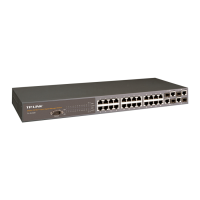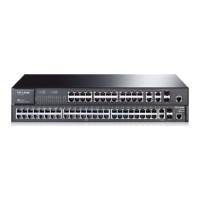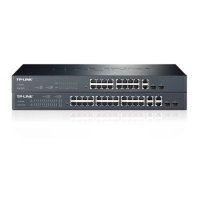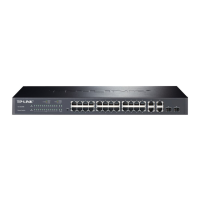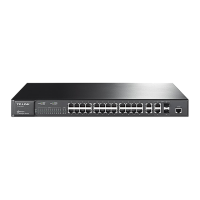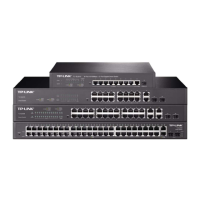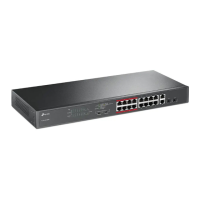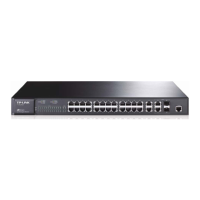Uvcvke"Tqwvgt"Rqtvu<"
Enter the st
atic router port which is mainly used in the network
with stable topology.
" XNCP"Vcdng"
XNCP"KF"Ugngev<"
Click the"Ugngev button to quick-select the corresponding VLAN ID
based on the ID number you entered.
Ugngev<"
Select the desired VLAN ID for configuration. It is multi-optional.
XNCP"KF<"
Displays the VLAN ID.
Tqwvgt"Rqtv"Vkog<"
Displays the router port time of the VLAN.
Ogodgt"Rqtv"Vkog<"
Displays the member port time of the VLAN.
Ngcxg"Vkog<"
Displays the leave time of the VLAN.
Tqwvgt"Rqtv<"
Displays the router port of the VLAN.
Pqvg<"
The settings here will be invalid when multicast VLAN is enabled
Configuration procedure:
Uvgr" Qrgtcvkqp" Fguetkrvkqp"
1 Enable IGMP Snooping
function
Required. Enable IGMP Snooping globally on the switch
and for the port on Ownvkecuv→KIOR"
Upqqrkpi→Upqqrkpi"Eqphki"and"Rqtv"Eqphki"page.
2 Configure the multicast
parameters for VLANs
Optional. Configure the multicast parameters for VLANs on
Ownvkecuv→KIOR"Upqqrkpi→XNCP"Eqphki"page.
If a VLAN has no multicast parameters configuration, it
indicates the IGMP Snooping is not enabled in the VLAN,
thus the multicast data in the VLAN will be broadcasted.
320305" Rqtv"Eqphki"
On this page you can configure the IGMP feature for ports of the switch.
When the switch receives IGMP report message, it examines the multicast filtering IP ID
configured on the access port to determine if the port can join the multicast group. If the multicast
IP is not filtered, the switch will add the port to the forward port list of the multicast group.
Otherwise, the switch will drop the IGMP report message. In that way, you can control the
multicast groups that users can access.
Choose the menu Ownvkecuv"→KIOR"Upqqrkpi"→Rqtv"Eqphki to load the following page.
143
